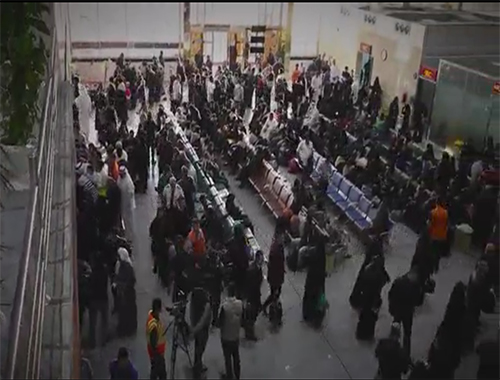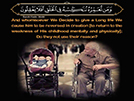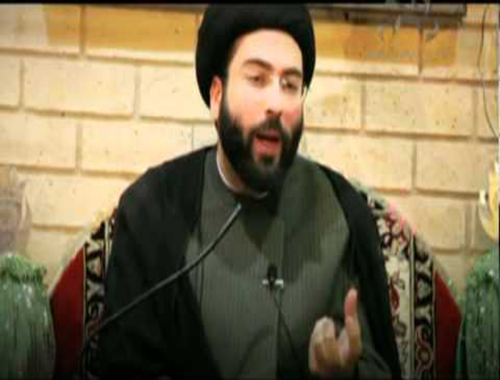Different ways of Neglecting Prayer
- Details
- Hits: 1838
Different ways of Neglecting Prayer
1. As we have already seen there are some who do not offer prayers because they refuse to believe that it is an article of faith and a religious obligation, commanded by Allah (S.w.T.). Such denial amounts to denying Allah (S.w.T.), Allah (S.w.T.)’s Prophet and Allah (S.w.T.)’s book, the Holy Qur’an. These are the people who shall be in everlasting chastisement. There is no escape for them.
2. It has also been mentioned that there are others who do not deny Allah (S.w.T.)’s complete supremacy and accept the fact that prayers have been made obligatory, but they never pray out of sheer laziness or due to excessive involvement in worldly affairs. These are the people who are not condemned as unbelievers but they are transgressors who have committed a greater sin, for which they will have to undergo severe punishment. Even if such a person were to die a believer, he can get salvation only after he has undergone the rigours of punishment. That a person who omits prayer can die a believer is itself a highly remote possibility, because sins make a person hard hearted and destroys his faith; except that the Almighty with His kindness and mercy heeds the call for help at the time of death and because of the sinner’s love for Ahl ul-Bayt (a.s.) allows him to die a believer. It is possible that intercession by Ahl ul-Bayt (a.s.) may lighten his punishment or remove it altogether. On the other hand these divine personalities have themselves said that their intercession will not reach those who consider prayer insignificant.
3. A third category of people are those who do not omit prayers altogether but pray occasionally. These are people whose faith is weak and lacks the strength of firm conviction. Such people when they do pray may be inclined to postpone prayers after the time has set it, on the grounds that they would pray later and may not pray at the earliest hour.
Certainly this way of neglecting Prayer is different from the previous two kinds but such a person has also considered Prayers unimportant, so whatever punishment is promised for those who belittle or omit Prayers will be applicable to him also. Traditions have made a special mention of such types of people. In one narration Imam Ja’far as Sadiq (a.s.) says,
“The Messenger of Allah (S) said,
“If one prays after the prescribed time the prayer rises up as the prayer of one who omits it and in a horrid condition. It tells the person: You have wasted me. May Allah waste you as you have wasted me.”
Imam (a.s.) also said that the first deed about which one shall be questioned in the presence of Allah on the day of QiyÄma is Prayer. If Prayer is valid the other worship acts shall be considered valid too, but if it is not correct his other deeds are also invalid.
In the same way the Messenger of Allah (S) says,
“My intercession shall not reach the person who delays prayer (even) after its time has arrived and (he delays it) till the time has expired.”
(Wasa’il ul-Shia Vol. 3 page 81)
He (S) also said,
“As far as one exercises caution and performs the five obligatory prayers the Shaitan is in awe of him. But if he wastes these prayers, the Shaitan gets an upper hand and lures him towards more dreadful sins.
(Wasa’il ul-Shia Vol. 3 page 81)
Imam Muhammad Baqir (a.s.) said,
“If one performs prayer on time keeping in mind its due importance and does not give preference to anything else, the Almighty writes for him salvation from punishment (that is Allah (S.w.T.) will not punish him). And one who recites prayer after its time has lapsed and prefers the worldly affairs to his prayers, his consequences are in the hands of Allah (S.w.T.). He may forgive or punish him.”











